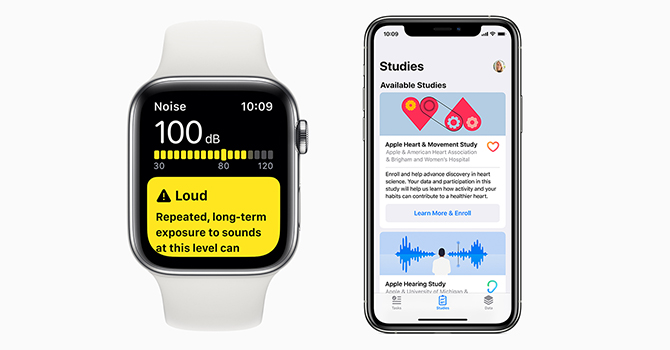
Michigan Public Health Researcher Partners with Apple to Study How Noise Exposure Impacts Hearing
The Apple Hearing Study will collect information to make sense of how exposure to sound over time can affect hearing.
We're still accepting applications for Fall 2026!
Apply Today
The Apple Hearing Study will collect information to make sense of how exposure to sound over time can affect hearing.

Many hazardous chemicals that cause health issues continue to be used in industrial, commercial and private settings, despite well-documented harms.

Pollen allergies afflict millions of Americans each year. In the industrialized world, pollen allergy rates are on the rise, and with climate change likely driving an increase in airborne pollen loads, experts predict the situation stands to only get worse.

Earlier this year, the greater Phoenix area got an "F" for ozone and particle pollution from the American Lung Association. For months, activists pushed for electric school buses. Now, a local Phoenix school board has launched a pilot program for buses that will produce zero direct emissions.

As the world grows warmer and the region grows wetter, extreme heat and rain will cause more people to die or become ill—a costly burden in terms of lives lost and health care costs to the state of Michigan, a new report says.

An independent panel of experts is poised to scrutinize one of the Trump administration’s most consequential environmental rollbacks. Critics of the Trump EPA say the review stands to highlight errors in that analysis that could inform future lawsuits against the administration.